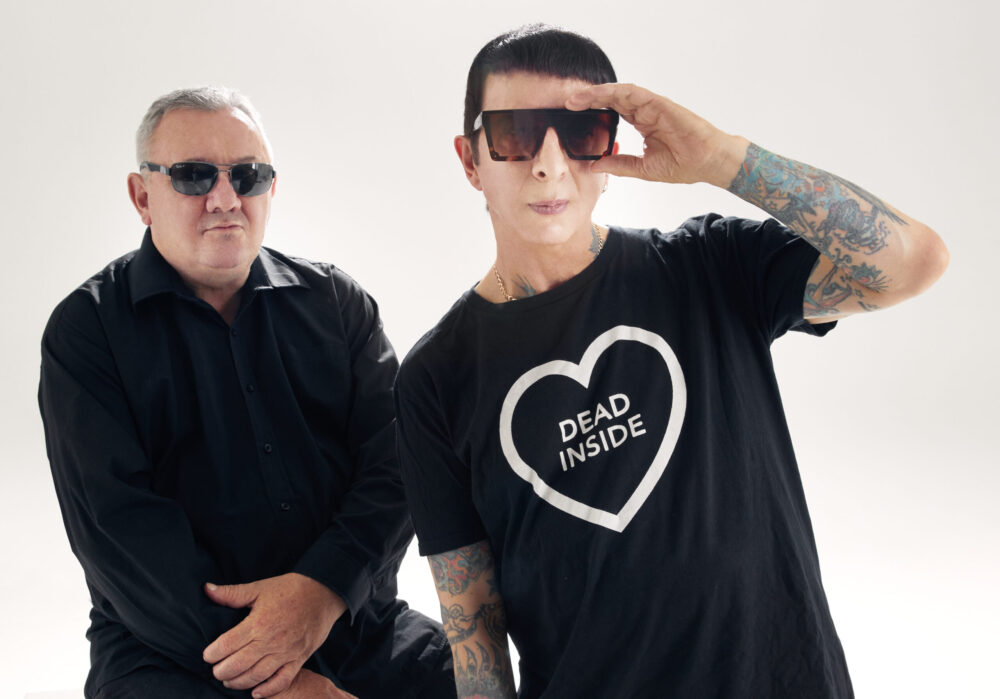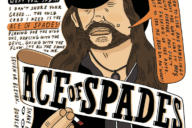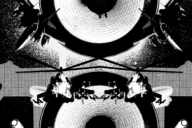Our favourite idiosyncratic synth pop duo are back. The duo consisting of Marc Almond and Dave Ball are touring together again and with another collection of electro-dance, Soft Cell deviant cabaret classics under their slinky studded belts. We thought it was time for a chat.
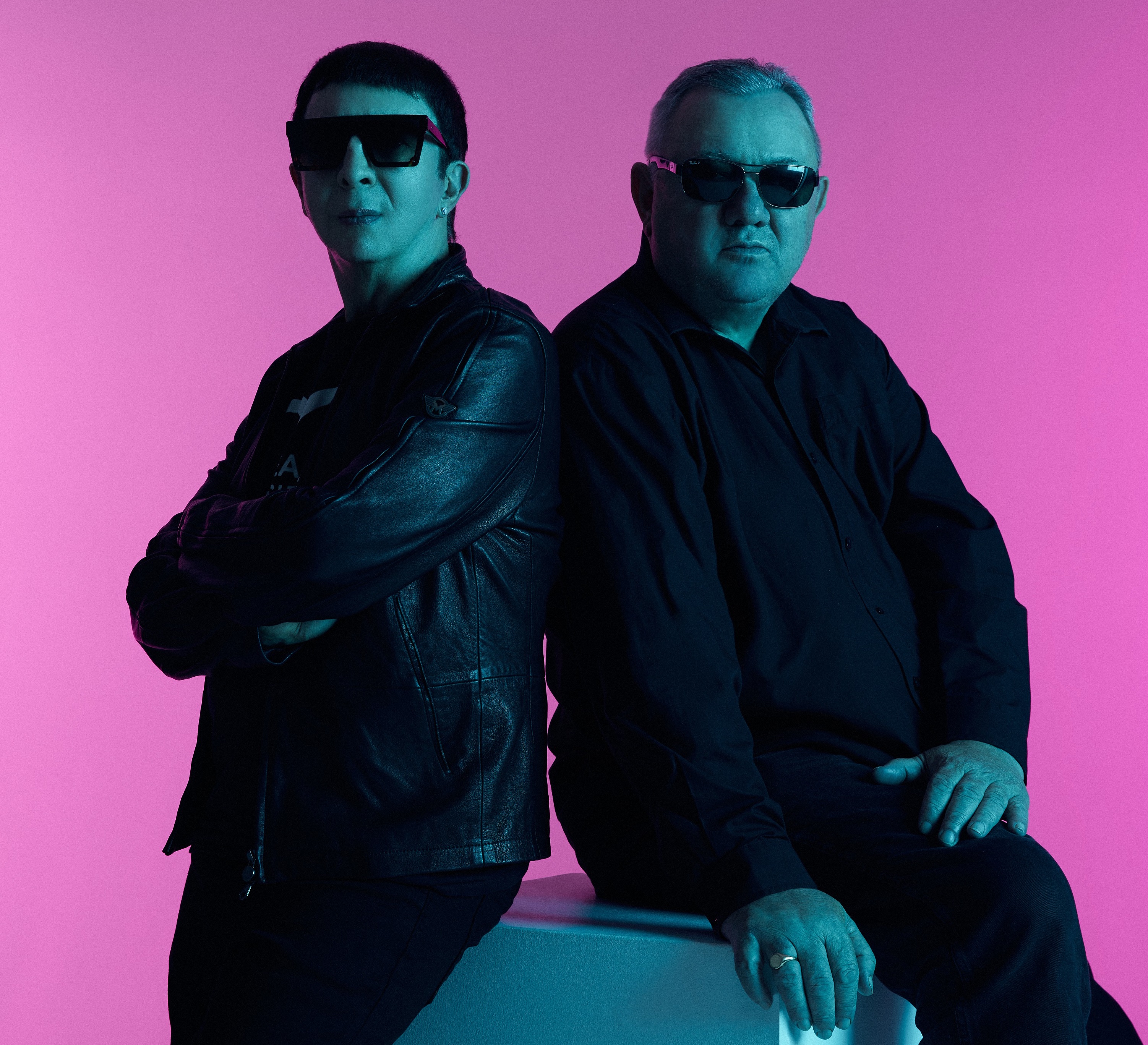
Can you tell us a little about the format of these November UK live shows? Are you essentially playing two live sets each evening?
MARC: We plan to do two sets in the evening. The first set will be greatest hits , some album and fan favourites as well as previewing some new songs live for the first time. The second set will be Non Stop Erotic Cabaret in its entirety and in track order with accompanying visuals and a few extras at the end. It’ll be a full-on and exciting show.
DAVE: The November shows will be split into two halves, the first half will include some old favourites, some hits that don’t appear on Non-Stop Erotic Cabaret & a few new tracks off our forthcoming BMG album, Happiness Not Included*
What is the major difference between staging a live show in the early 1980s to playing live now in the 21st Century?
MARC: We have better technology available now and a richer catalogue of songs that have a history and an audience that has grown with the catalogue. We’re able to explore the visual side a lot more and have more experience as musicians and performers.
DAVE:The main difference in the 21st Century is the technology. All our visuals, lights & sequenced synths & drum machines are run live from offstage computers as opposed to the old Kodak projectors & Revox reel to reel tape machines we used to use onstage. It makes changing around set running orders a lot easier and gives us much more control & clarity in the sound & visuals. I still play live analogue synths onstage (a Korg Prologue & an ARP Odyssey) & we certainly don’t use autotune on Marc’s or the backing singer’s voices. One thing that hasn’t changed is Gary Barnacle still plays a mean saxophone.
Can you believe Non-Stop Erotic Cabaret is now 40 years old?
MARC: If I sit back and think about its hard to believe that a small collection of songs has had such a long life, that people still listen to and enjoy it. I’m amazed at how fresh and current it still sounds – and lyrically still relevant. It doesn’t feel like it’s 40 years old at all – but it scares me a bit to think that it is
DAVE: What surprises me is how fresh Non-Stop Erotic Cabaret still sounds today. I suppose we were both 40 years younger so Marc’s voice sounds more youthful and not so polished as now and my synth playing & arrangements were more simplistic (although I’ve always tried to stick with my minimalist style).
What was the funniest story you can tell about the recording of the debut album?
MARC: I can’t think of any particular funny incident as such but we were young guys from Northern seaside towns who formed the band in a Northern city and here were in one of the top New York Studios recording. We ate up the experience – and in some ways New York ate us up.
DAVE: The funniest things that happened during the recording of the Non Stop Erotic Cabaret album probably didn’t happen in the studio, but usually when we were out partying in New York. We were usually very conscientious in the studio under the watchful eye of our producer, Mike Thorne, so we never usually took anything stronger than coffee when working – we saved that for the evenings when the chaos would usually commence.
You talk at length about growing up in the north of England in your autobiography – do you think your upbringing gave you both that famous ‘northern grit’? When have you most needed it historically with Soft Cell?
MARC: I think being born in Lancashire in seaside towns (Southport and Blackpool) gives you a Vaudevillian sensibility. It’s the home of cheap showbiz and hard bitten entertainers, lurid cabarets, casinos and pier shows. Seaside postcards, Coronation Street and The Beatles. Being born in the North gives you a tough survival instinct and the humour to deal with it. We definitely needed it with Soft Cell in the early days because we were treated by some quarters as the cheap seaside sideshow poor Northerners.
DAVE: We are both originally from The North – Marc from Southport, me from Blackpool. I think our ‘northern grit’ was our sheer determination to be successful, against all odds. We probably wouldn’t have passed the audition stages of Pop Idol or X Factor nowadays (in our day that would have been Opportunity Knocks or New Faces). All the guitar bands in Leeds used to laugh at us, it was the tail-end of punk & the idea of a synth duo was unheard of back then, especially with a camp looking singer & a guy who looked like a bouncer on a funny electric organ. We remained convinced we were onto something & luckily we were proved right; the British synth duo was born – Pet Shop Boys, Eurythmics, Yazoo etc soon followed.
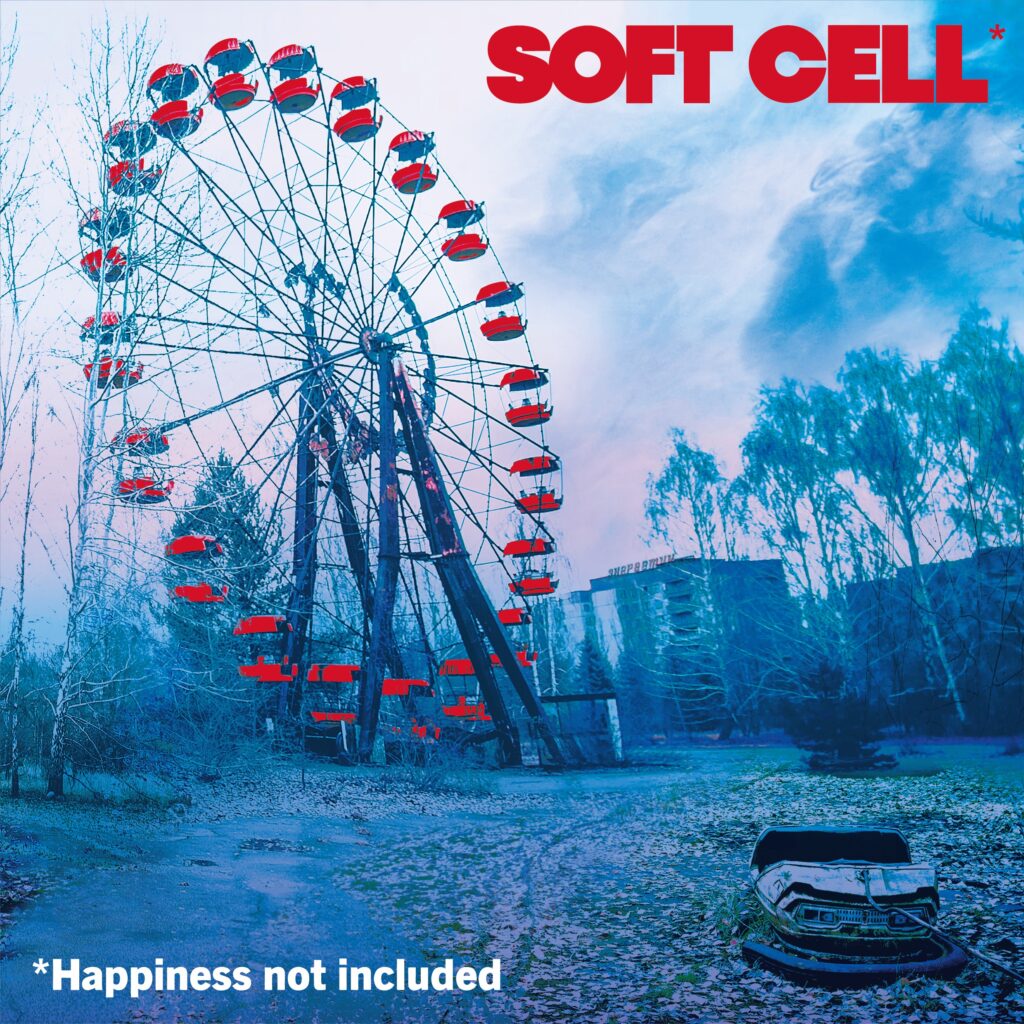
Soft Cell’s forthcoming album ‘*Happiness Not Included’ will be out in spring 2022 – does the title reflect any newfound wisdom during this Covid era, maybe that we cannot rely on other people to give us happiness, that we are all ultimately responsible for our own pleasure?
MARC: Covid didn’t really have anything to do with it apart from maybe enforcing my feelings about life. The world has been going to hell in a handcart for as long as I can remember – maybe every century feels the same and maybe happiness is almost impossible to attain. It doesn’t come with the package. I’ve always been able to look on misery with humour. Life is a shitshow, deal with it. And survive.
DAVE: The new album ‘*Happiness Not Included’ is very reflective and melancholy in parts with some classic Marc Almond witty observations about life. Most of the music was written before the lockdown, pre-Covid, so any references to the pandemic would have been written later, after I sent the audio files to the studio where Marc was working.
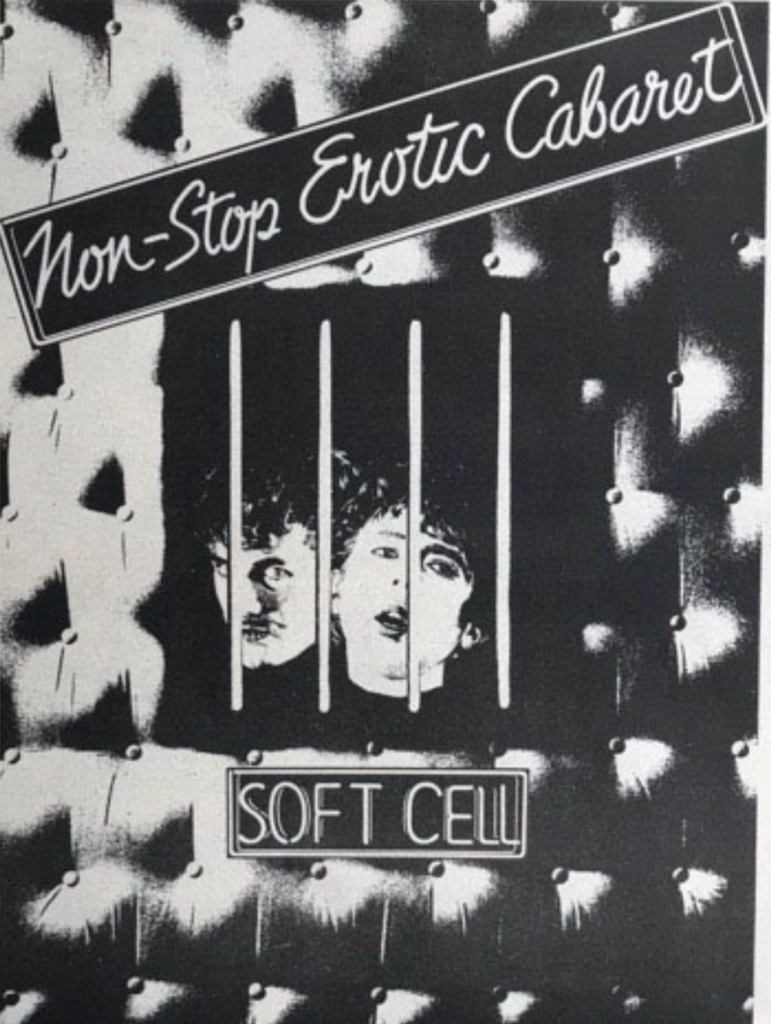
You’ve both had extensive, varied and successful solo careers away from Soft Cell, but as soon as you hear the new album listeners know instantly that they are listening to a Soft Cell record rather than a solo release from Dave or Marc – how do you do that? What is the secret?
MARC: It’s just the recipe and the chemistry. Hard to define really. I’ve sung over other electronic tracks, but Dave’s music has a great cinematic feel and pop sensibility. It’s dark and threatening at times, but with a sleazy naughtiness too. There’s nothing like it. It has humour too. Dave and I are as different as chalk and cheese, but we do share a darkly sardonic sense of humour and our tastes in music, though different, in some ways do overlap in enough ways. Ever since I heard Donna Summer sing over Giorgio Moroder’s cold ethereal electronic backing track of ‘I Feel Love’ I realised that there’s a great recipe with an emotive singer mixed with cold electronics. Soft Cell try to get a bit of that – electronic pop and soulful songs with a happiness on the surface, but a bitterness underneath. Like salted caramel.
DAVE: We never worked in the studio together at all during the recording. We used to write like that back in the 80s – I would give Marc cassettes of my demos, he would go away to write the lyrics alone and then we’d get together and combine our efforts. Writing in isolation has always been quite normal for us. As for the lyrical subject matter, you’ll have to ask Marc as he wrote them all – I just provided the background. I always think of Soft Cell’s modus operandi in a cinematic way – I write the score & Marc writes the script. Both Marc & I have worked on many other projects outside the Soft Cell umbrella as I think we both enjoy collaborating with other artists. My main other band is The Grid, which is still an active unit – in fact there is a Grid remix of the forthcoming Soft Cell single. Depending on who I’m working with I’ll adjust my approach accordingly so, if I’m doing solo ambient stuff, I’ll work differently to working with The Grid. Likewise, if I’m working with Marc, I’ll put my Soft Cell hat on, which means I will have a set of parameters that are specific to us – certain sounds and chords that comprise our sound. Like a signature I suppose.
Your record labels have made some very strange choices of singles throughout Soft Cell’s career to date – has that been a source of frustration for you both?
MARC: Most of those choices have been decent hits though. Maybe if some weren’t bigger hits it was our fault for just not making them suitably commercial. I don’t really regret any of the choices. Maybe ‘Down In The Subway’ missed the Soft Cell mark – more a solo style track maybe? ‘What?’ is a bit weak on reflection, but I have an affection for it. We chose tracks like ‘Numbers’ because it wound up the record company who had become the enemy by then – it was the art college transgressive nature coming to the fore.
DAVE: I don’t think it was the record companies that chose our singles – we were always given artistic freedom to decide, sometimes not very wisely. The most notable being the single ‘Numbers’ which lyrically dealt with multiple sexual partners just at the beginning of the worldwide AIDS epidemic. I think it was a great track (and very relevant), but maybe a bit heavy for daytime radio. Things got really out of hand when we found out the record label were double-packing the single with a free copy of ‘Tainted Love’, which is even more ironic as Coil did a version of Tainted Love which later became an AIDS anthem, Marc even featured in their video as The Angel of Death & the video was subsequently displayed in the Museum of Modern Art in New York. Anyway, back to my story – when news of this freebie got back to our office, Marc & our ex-manager, Stevo, promptly went round to Phonogram Records’ head office in New Bond Street, Mayfair where they started setting off fire extinguishers and smashing all the gold discs that lined the corridors (mostly Status Quo’s!) before being forcibly ejected from the building by security. Not exactly a great working relationship.
How do you see things working in this new era of streaming? Is it even possible to make money from releasing new records these days?
MARC: It’s much harder to make money from records and the streaming revenue is very unfair. It needs to be remedied as the royalties even from many many streams are pitiful. I’m not a fan of it at all, but I’m too old school – I’m a CD and vinyl child. A lot of mid-placed bands bring out an album to promote a tour and make revenue from live work. People love a real live experience. Covid devastated live music and nearly finished a lot of bands off. It’s coming back, but there’s still a lot of hesitance. The music industry in its current form is dying anyway and streaming is a part of that.
DAVE: Music streaming remains one of life’s great mysteries to me. From what I’ve read in the music press, the only companies that make money out of it are Spotify, iTunes & various other copyright thieves. I have never seen any notable income from any of these providers despite having had millions of streams yet the head guy of Spotify has apparently made over $2 billion. Soft Cell’s ‘Tainted Love’ has currently had over 30 million hits on TikTok so I don’t know if we’ll make anything from that – I won’t hold my breath. I’ve asked many music biz people about what the royalty rate is yet nobody seems to know. The record companies are obviously in on it, but I’m not sure how transparent they are about their revenues.
Do you have further plans for Soft Cell after this UK tour and new album?
MARC: No plans at present, we’ll see after the album and dates.
DAVE: We have this short tour to complete then it will be the festive season so there will not be much Soft Cell activity until 2022 (when the new material will start surfacing plus a lot of reissues later next year). We will see how this new album performs first – if Marc & I are up for it we may well do some more shows and another album as BMG have an option. I always try to keep an open mind.
THE ACE NEW SOFT CELL ALBUM ‘HAPPINESS NOT INCLUDED IS OUT NOW

